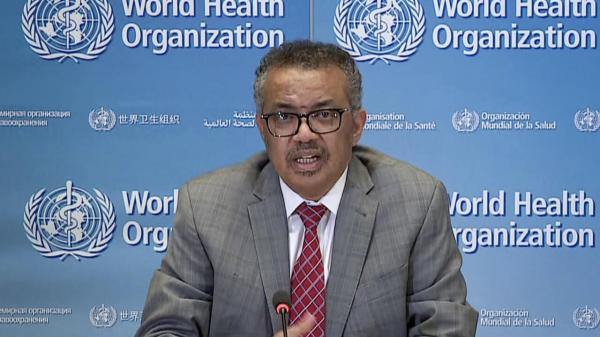
The head of the World Health Organization told staff Wednesday the UN agency was reducing its management team by nearly half due to dramatic US funding cuts.
In a short email to WHO staff, seen by AFP, Tedros Adhanom Ghebreyesus announced the new “composition of the executive management team” at the agency’s Geneva headquarters, with six members — down from 11.
The new team takes over from June 16, he said.
Two big figures from WHO’s work leading the global battle against Covid-19 will be leaving: emergencies director Mike Ryan of Ireland and Canadian Bruce Aylward, who heads work towards universal health coverage.
“Mike planned to leave over two years ago but stayed on at my request, and I am very thankful for that,” Tedros wrote in a second email to staff.
Ryan’s “steady presence has been instrumental during our toughest times, especially during the COVID-19 pandemic”, he added.
Five existing members will remain, including Jeremy Farrar, a British medical researcher and former head of London-based health charity The Wellcome Trust.
He will become the WHO’s assistant director-general in charge of health promotion and disease prevention and control, handing over his current position as chief scientist to French physician Sylvie Briand, current head of the agency’s Pandemic and Epidemic Diseases Department.
Tedros told member states last month the agency would need to slash operations and jobs as US funding cuts had left the organisation with a budget hole of several hundred million dollars.
The United Nations health agency has been bracing for President Donald Trump’s planned full withdrawal of the United States — by far its largest donor — next January.
The United States gave the WHO $1.3 billion for its 2022-2023 budget, mainly through voluntary contributions for specific projects rather than fixed membership fees.
But Washington never paid its 2024 dues and is not expected to pay in 2025.
Tedros said in April the WHO was facing a “salary gap” of $560 million to $650 million for 2026-2027.
He did not say how many jobs would be lost, but insisted the most significant impact would likely be felt at the organisation’s headquarters in Geneva, starting with senior management.
While further cuts are not expected immediately, the issue is likely to be on delegates’ minds as countries gather for the WHO’s annual decision-making assembly next week.






















